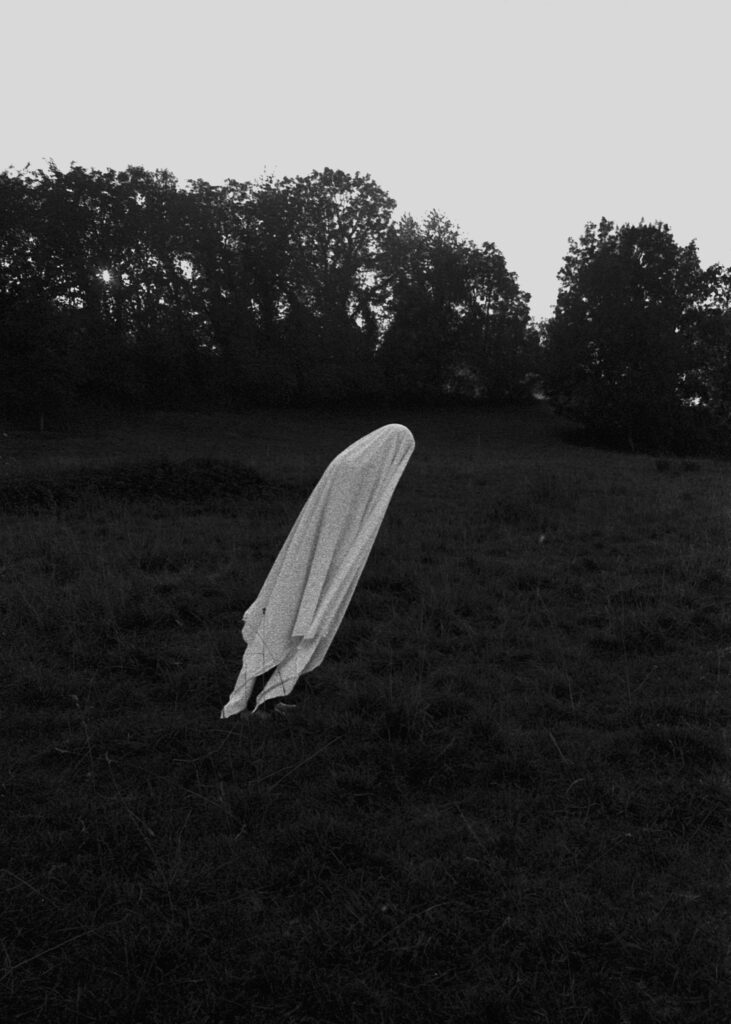DNSEP 2025 Design des média avec les félicitations du jury
Tutorat théorique : Gunther Ludwig / Tutorat plastique : Laurent Baude
axelmrt.contact@gmail.com / axelmartinache.es
insta: axel_mrtch
Artiste plasticien, photographe
______________________________________
Relation au monde
Cette recherche découle de ma fascination pour les interactions entre le réel et l’imaginaire, ainsi que des défis que ces relations posent à ma pratique photographique. J’explore les enjeux contemporains de la photographie, au regard de l’IA et des images dites “photoréalistes” qui remettent en cause notre lien aux représentations de la réalité. La photographie capture un fragment de réalité, qu’elle questionne et réinterprète à travers un imaginaire partagé et subjectif, nourrissant ainsi une réflexion sur notre expérience du monde et se réinscrivant dans mon travail artistique ; se pose alors la question de la place de l’artiste vis-à-vis de son médium et de sa relation au monde. Je photographie sur plusieurs supports et en utilisant diverses techniques, qu’elles soient analogiques, numériques, en gravure, en cyanotype ou encore à partir d’images adoptées. Je retouche et me réapproprie mes images. Mon appareil est toujours à portée de main, et je travaille en improvisation.
Ces réflexions prennent une résonance particulière aujourd’hui. Après l’obtention de mon DNA en 2023, j’ai approfondi la philosophie de Hartmut Rosa, penseur allemand contemporain qui s’interroge sur des concepts tels que « l’accélération » et « la résonance ». Ces notions, qui traduisent notre rapport au monde, vont au-delà du champ de la critique sociale, en s’adressant directement à chacun d’entre nous. Nous ressentons tous les effets de l’accélération — qu’il s’agisse de la technologie, du rythme de vie, des changements sociaux ou, plus généralement, de notre rapport au monde. Rosa propose une voie pour nous libérer de cette aliénation généralisée : la résonance, un concept à la fois simple et mystérieux, qu’il explore dans son livre Résonance : Une sociologie de la relation au monde. Selon lui, “Nous devons apprendre à écouter le monde, à le percevoir nouvellement et à lui répondre ; c’est une toute autre chose que d’en disposer.” Je ne photographie pas directement la réalité : l’appareil est pointé vers l’extérieur, mais il capture mon intériorité.
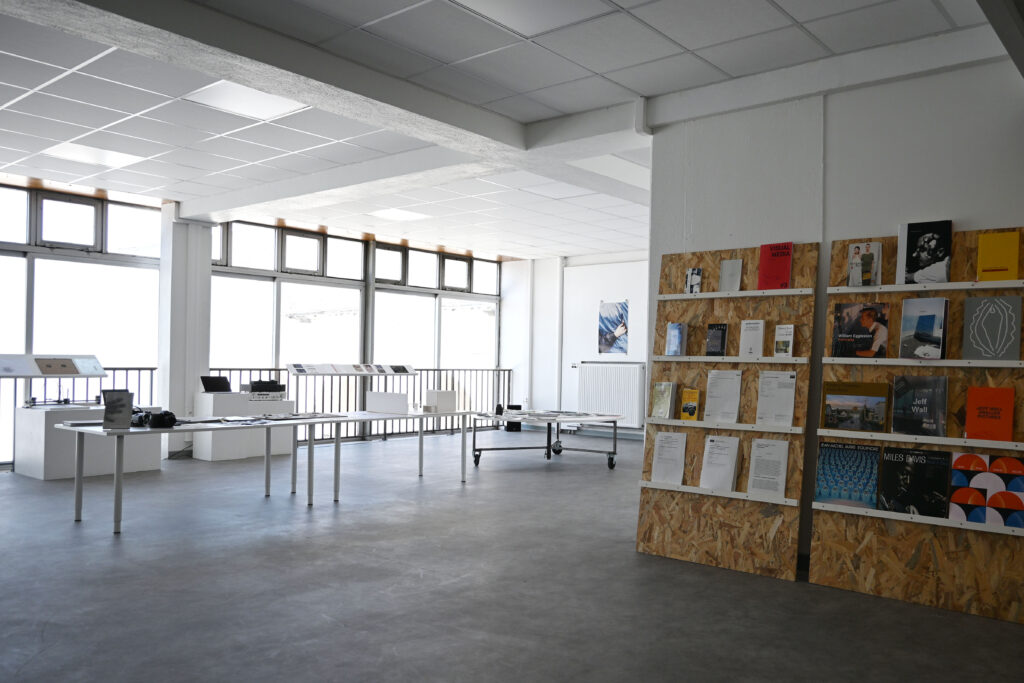
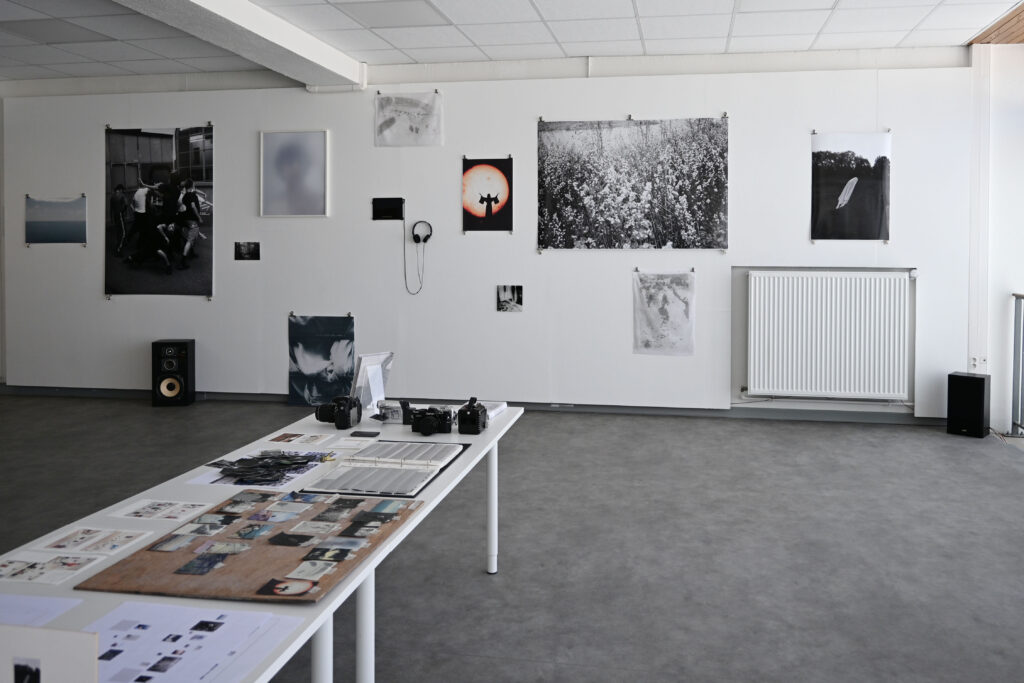
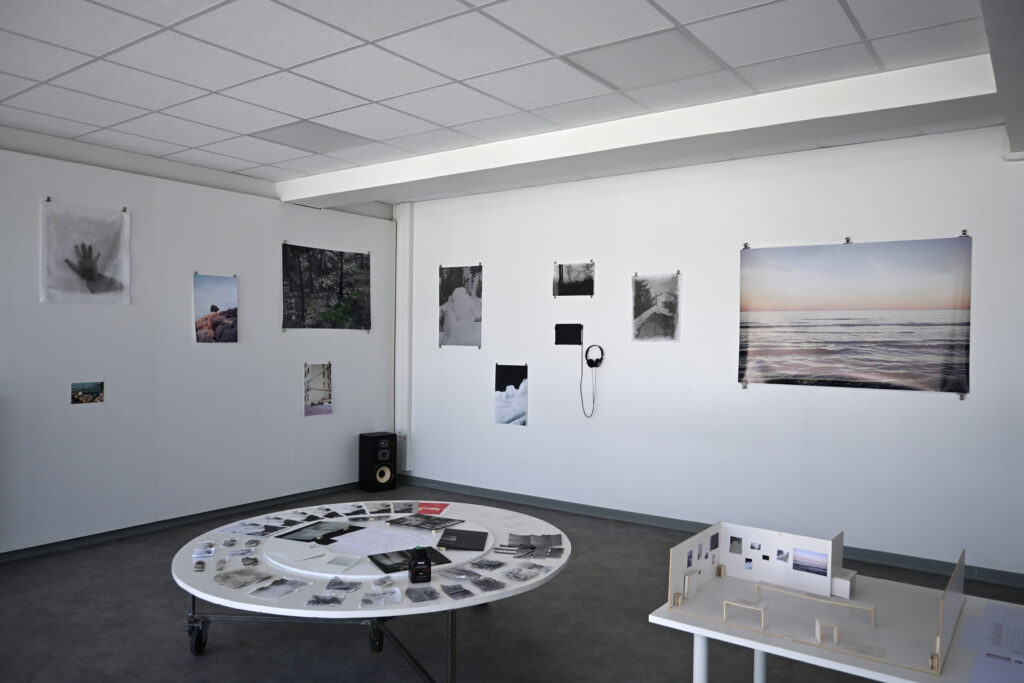
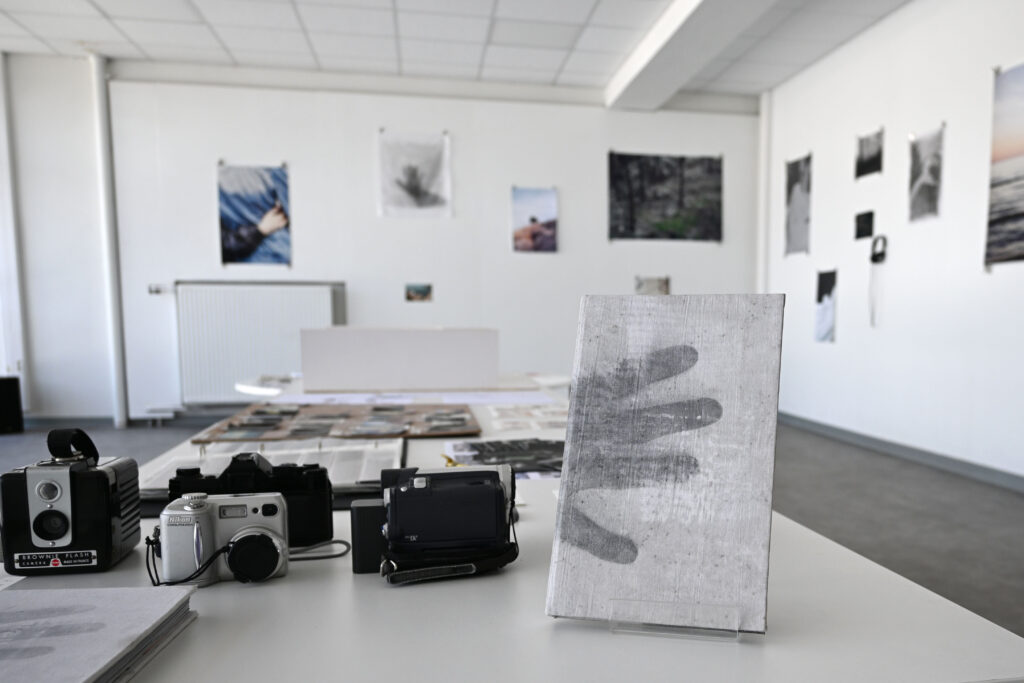
Visual artist, photographer
Relation au monde (Relationship to the world)
Theoretical Tutor: Ludwig Gunther / Artistic Tutor: Baude Laurent
Axel Martinache, visual artist and photographer, currently studying at ESAD Orléans.
This research stems from my fascination with the interactions between the real and the imaginary, as well as the challenges these relationships pose to my photographic practice. I explore contemporary issues in photography, particularly in relation to AI and so-called “photorealistic” images, which challenge our connection to representations of reality. Photography captures a fragment of reality, which it questions and reinterprets through a shared and subjective imagination, thus nourishing a reflection on our experience of the world and being re-inscribed in my artistic work; the question then arises about the artist’s position regarding their medium and their relationship to the world. I photograph on multiple mediums and use various techniques, whether analog, digital, engraving, cyanotype, or from adopted images. I retouch and reappropriate my images. My camera is always within reach, and I work through improvisation.
These reflections take on particular resonance today. After obtaining my DNA in 2023, I delved into the philosophy of Hartmut Rosa, a contemporary German thinker who examines concepts such as “acceleration” and “resonance.” These notions, which reflect our relationship to the world, go beyond the realm of social criticism, directly addressing each of us. We all feel the effects of acceleration—whether through technology, the pace of life, social changes, or more generally, our relationship to the world. Rosa proposes a way to free us from this widespread alienation: resonance, a concept both simple and mysterious, which he explores in his book Resonance: A Sociology of Relationship to the World. According to him, “We must learn to listen to the world, to perceive it anew, and to respond to it; this is something entirely different from merely disposing of it.” I do not photograph reality directly: the camera is pointed outward, but it captures my interiority.
